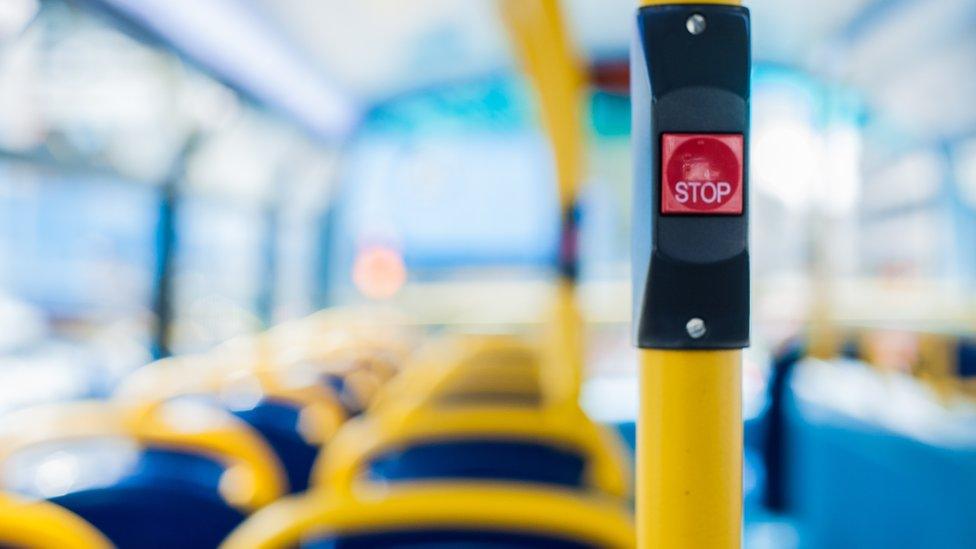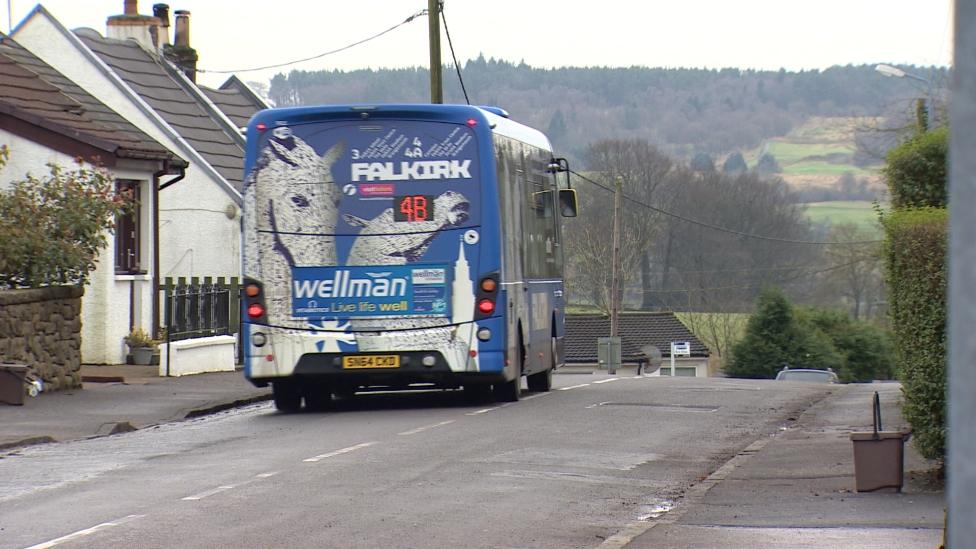Analysis: How Scotland's buses are run
- Published

Buses are Scotland's most-used form of public transport. Four times as many journeys were made by bus than train in 2015-16.
That year, there were 407 million bus journeys made in Scotland. A whopping number, no doubt - but that's a reduction from 414 million the previous year.
There's been a decade-long decline in the number of routes, and fares have risen.
Some think the way bus services are run could be a cause of this decline.
Train services are run by a single operator, ScotRail. But over 200 bus companies are involved in running Scotland's bus network.
When ScotRail fall below their targets, they're the focus for complaints. Bus firms are judged by different standards - and holding them to account is difficult.
In the 1980s, Margaret Thatcher deregulated Scotland's bus service. Routes were opened up to competition. The Iron Lady argued this would increase choice for bus passengers, and drive down fares.

Those companies were not obliged to run buses on routes unless they're profitable. Scotland's bus services are subsided to the tune of £2.6bn a year, but a company's bottom line rules. When social need meets commercial reality, there's usually only one winner.
As a result, there are big gaps in bus provision. Passengers are forced to take long circuitous routes. But which bus firm would want to make a loss, running a bus service through quiet villages, when they can make more money on a busier route?
The Unite union says deregulation must be scrapped. So far, their call for a screeching U-turn has not been heeded by the Scottish government.
But an impending change in the law south of the border may pile pressure on the Scottish ministers.
'Cherry-picking'
In England, bus services are also deregulated. There, many bus passengers complain about poor bus services in remote and rural areas. Westminster politicians are debating a potential game-changer - the Bus Services bill.
If passed, it will allow English local transport authorities to stop bus companies "cherry-picking" the most profitable routes. Instead, the bus firms would have to bid for a bundle of routes - some busy, some less so.
It's what happens in Scotland with the west coast ferry contract - currently run by CalMac. Some routes, like Ullapool to Stornoway, are very busy and profitable. Others, like ferries to Muck and Eigg, less so. The contract bundles them up, and allows the profitable routes to subsidise the others.
Some here think a similar solution would improve Scotland's buses. The Transport Minister, Humza Yousaf has promised a Transport Bill in 2017. It's detail isn't yet clear, but some think Scotland could go down this road.
- Published19 January 2017
